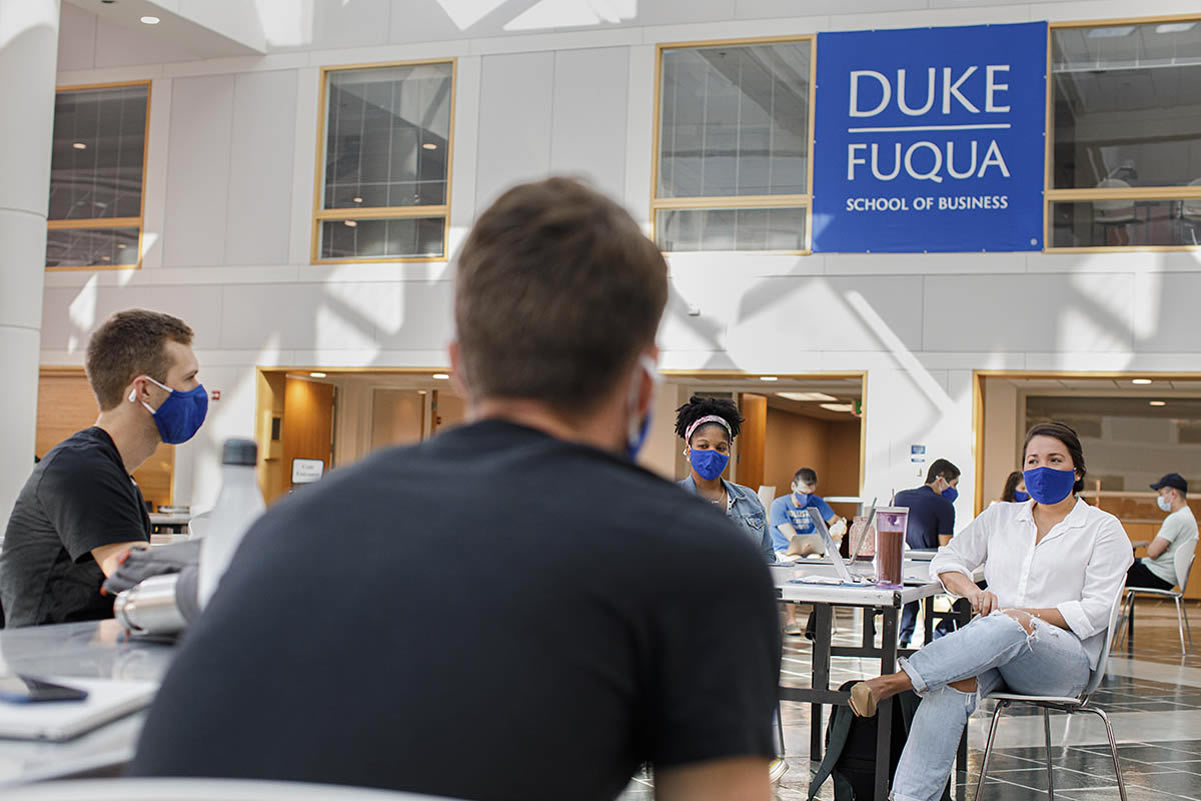Duke Daytime MBA Student Blog

Case Competitions Helped Me Explore the Tech Industry
Companies from different industries come to Fuqua’s campus with fascinating challenges, so I was very intentional when handpicking just a few of them to participate in, focusing on gaining exposure to industries I was genuinely interested in.

While a case competition can simply be described as several groups of students competing against each other for the recognition of the, “best recommendation” to solve a real-life business challenge, participating in one competition is so much more than that. It’s a chance to advance business acumen, apply concepts learned in class to real-world problems, and network with people from the company sponsoring the competition, just to name a few.
Companies from different industries come to Fuqua’s campus with fascinating challenges, such as the Patagonia Case Competition. Patagonia was looking for ways to eliminate textile waste. For the Deloitte National Case Competition, students were challenged to deliver top-notch recommendations to traditional challenges brought by clients to prestigious consulting firms.
Personally speaking, these have all been rewarding experiences, so it’s hard to choose just a few of them. Nonetheless, knowing that case competitions are time-consuming in a world where time is a limited resource, I was very intentional when handpicking just a few of them to participate in, focusing on gaining exposure to industries I was genuinely interested in.
Among the case competitions I joined, the most exciting one for me was the Business Innovation Challenge by Microsoft. The prompt was around the value proposition of Microsoft’s artificial intelligence (AI) offering and the action plan to increase awareness and credibility among decision-makers of potential AI customers. What thrilled me was that the challenge was purposely very open and vague, giving participants the freedom to explore moonshot ideas.
My team and I leveraged our connections with people in the company and the tech industry to acquire insights about the direction and current strategy. After aligning the problem statement, we applied theoretical knowledge to develop a go-to-market strategy to advance Microsoft’s competitive advantage in the AI space.
We finally presented our recommendation to a panel of company representatives formed by Microsoft’s university recruiter and his team. Although our idea was not selected as the best one across the 12 participating teams, we not only received great feedback, but also achieved other individual goals.
In addition to networking with accomplished professionals during the competition, I gained insights about the tech industry and its players, products and trends. From a teamwork perspective, I learned how to guide a team to move quickly and make decisions fast. Moreover, as an international student, I practiced my communication skills in English. Finally, I built some of the best memories from business school while working with amazing people.


